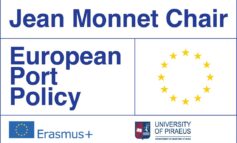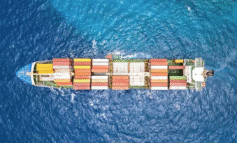The World Bank Group released a working paper titled “A Metric of Global Maritime Supply Chain Disruptions: The Global Supply Chain Stress Index” co-authored by Jean-Francois Arvis, Cordula Rastogi, Jean-Paul Rodrigue and Daria Ulybina.
This paper explores the unprecedented disruptions in global containerized trade in recent years, emphasizing major events such as the COVID-19 pandemic, the 2023 Panama Canal drought, and attacks in the Red Sea. These disruptions have caused significant delays and inefficiencies in maritime logistics, disrupting the traditional predictability of container shipping schedules. The maritime supply chain disruption index, derived from Automatic Identification System (AIS) tracking data, calculates the equivalent stalled ship capacity measured in twenty-foot equivalent units (TEUs), providing insights at the port, country, regional, and global levels. To meet the need for a comprehensive metric, the Global Supply Chain Stress Index (GSCSI) is introduced, offering a monthly, port-centric measure of delayed container shipping capacity. This index focuses on Panamax-class vessels and larger, aiming to provide a unified indicator of port stress and supply chain disruptions. The paper underscores the importance of quantifying these impacts and addresses the current gap in economic literature on the subject.
The full report is publicly available and can be accessed here.












